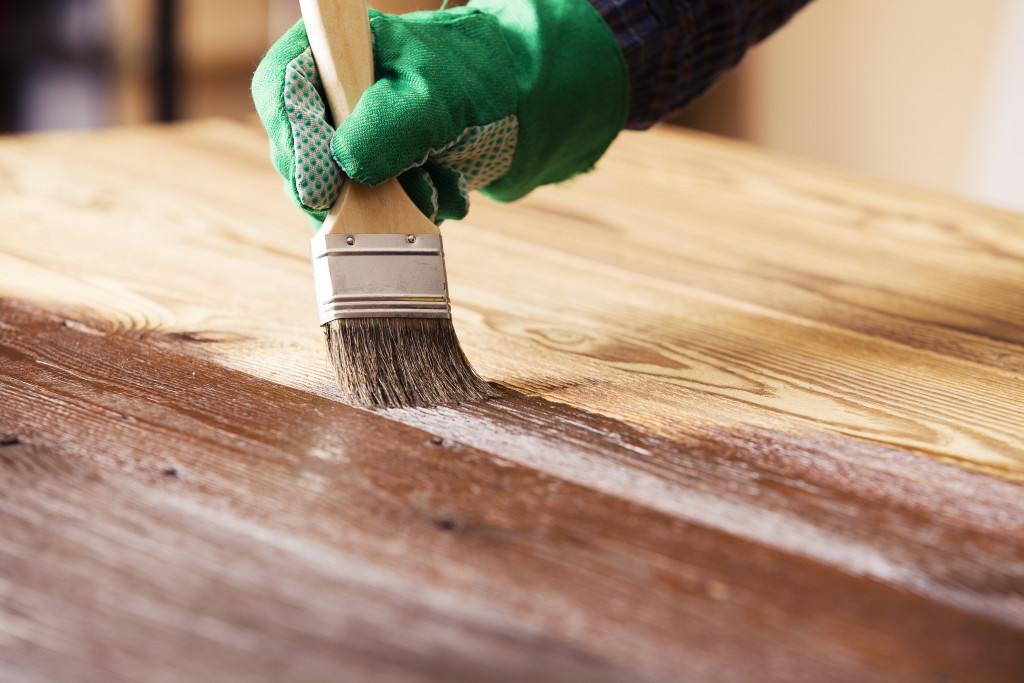There are many careers in the real estate market out there. However, one of the most demanding and rewarding jobs is becoming a house flipper.
House flipping is getting all the attention this year because of home prices. People are looking for choices when purchasing a home, and one of the cheapest homes in the market is flipped homes. But this doesn’t mean that they are inferior in quality.
If you want to be a house flipper, then read on. This article might help you determine if this career choice fits your lifestyle.
What Is House Flipping?
House flipping is a profitable real estate investment strategy. It involves purchasing properties to hold for short periods before selling them at higher prices than you bought them for, rather than buying and living in the home as a residence. This kind of venture should be treated like any other stock market speculation – to make money from increases or decreases in value over time.
Flipping a house can mean two different strategies. Both viable options are taking on a fixer-upper and upgrading it for market readiness or simply holding the property until you can resell it at a higher price point. If you live in the property before reselling it, you’ll have to deal with the problems of moving into a new house when you finally sell it. But in either case, your primary objective will be to purchase low and sell high to make substantial profits within months or even just one year.
Is Flipping A House Profitable?
Investing in a home flip can be quite lucrative, yet rookies must remember that this real estate tactic carries risks. Moreover, employing the 70 percent rule is beneficial for deciding how much you should spend on a property or distressed house if you aim to make money when it’s time to sell. Nevertheless, with careful research and proper preparation, flipping homes can bring big rewards!
24/7 Job
When you become a house flipper, you should expect the first time you have to put into this job. You’re not going to have a typical day job. You won’t be clocking out after eight hours. House flipping is a 24/7 job, and you’re going to get calls all the time.
As a house flipper, you’ll continuously be checking the market. You’re looking into the cheapest homes you can flip, and you’re looking for suppliers that can further reduce your costs. You’re going to make many calls, and people will also be calling you, sometimes in the dead of night. Clients might contact you for emergencies, especially if you’re doing restorations (more on that later). So you might not get enough sleep.
Prepare yourself for a busy routine once you’ve chosen this career path. Prepare to become even busier once you become famous in the market.
Multi-function
You’ll also have to take up a lot of roles as a house flipper. Your project will demand you to become its manager, designer, and contractor. So you’re going to need a lot of experience.
Taking up multiple roles can help you save up on costs. Material and labor will already take up a decent chunk of your expenses, so you might not be able to add more manpower into your business. Moreover, you might also be the one to sell your flipped homes in the market. So you might also have to take up the role of real estate agent and broker at the same time.
However, there’s a good chance that you can hire more people once your career and business take off. You can take in interns and maybe some full-time hires once it happens.

Restorations
As a house flipper, you shouldn’t just expect that you’ll only be doing house flipping. You’ll be called for various jobs related to your work. One of the most common jobs you might have to take is restorations.
Homes depreciate significantly throughout the years, and some homes can be abandoned as well. Some can be damaged by a typhoon or fire. The people who live in these homes or people who want to restore them will look to you as their savior.
Restorations aren’t an easy job, but they are more satisfied and have better pay. The most common task in this market is water damage restoration. It’s common because water is everywhere, and a decent-sized storm can easily damage a home. Moisture is also a severe problem when a storm hits. This can damage the roofing of a home, which can be disastrous once it falls apart.
When there is water, there is mold. Mold restorations are also one of the most common restorations you’ll have to do. It’s a pretty disgusting job, but the pay is good, and giving a mold-infested home is always a rewarding endeavor.
Restorations will take up a decent chunk of your projects, but don’t worry. They are as rewarding as the rest. Unlike standard house flips, restorations are all about bringing back homes that wouldn’t have another chance in the market if it wasn’t for you.
Making Dreams Come True
Restorations and house flipping all achieve one goal: making dreams come true. Many Americans nowadays can’t afford a home. Many more have problems in bringing their old homes back to life/ It’s a constant struggle, and millions of Americans are experiencing it.
As a house flipper, you can make homes a lot more affordable. There are thousands of abandoned homes in the market. Thousands more are being sold at a much lower price because they are dilapidated. You bringing these homes into the market is a godsend for some.
You’re also solving the current housing shortage we are experiencing. The number of people living in the country exceeds the number of homes being sold. One way to solve this problem is to restore old homes and bring them in a fresh supply. Sure, the housing shortage isn’t going away anytime soon, but home prices might at least decrease in the coming years with your effort.
Your job is all about making one of the American dreams come true. It’s a dream that many Americans aspire for, and by simply contacting you, they’re already one step into making their dream home come true. This is why house flipping is such a profitable and rewarding career to take.
Pros And Cons Of House Flipping
For some, there’s a certain appeal to working on improving a residence. But plenty of risks are involved when transforming one’s home into a lucrative house-flipping venture. It can even affect household finances. Those that leap may be well-rewarded if they play their cards right!
Pros
- Profits – In recent years, the demand and prices for move-in-ready homes have skyrocketed. Savvy house flippers have reaped a handsome reward from renovating and selling these properties on the market.
- Diversification of Investments – Many investments are held in retirement accounts, most of which typically consist of stock and bond markets. Real estate investment provides specific protection against any dip experienced by the stocks or bonds market. This allows you to diversify your portfolio and lessen risks associated with volatile liquid markets.
- Great Side Hustle – If you find yourself between seasonal construction projects, why not put your skills to use and make some extra income? It’s an excellent way for those in the industry to stay busy during off-seasons.
Cons
- Market Changes – Property investments can be rewarding but also have certain risks. Prices may skyrocket one day and plummet the next, leaving you responsible for mortgage payments far longer than anticipated or even feasible to predict. Considering these potential scenarios when buying property is essential so that you are prepared no matter what happens in the market.
- Run Out of Funds – Even minor home improvement projects can be costly and time-consuming. If you find yourself running out of funds before the project is complete, not only will it delay your move-in date, but you’ll also need to pay for ongoing mortgage payments while trying desperately to finish what’s left over.
- Property Will Not Sell Fast -Despite no drastic shift in the market, houses may not always sell speedily—sometimes for inexplicable reasons. Plus, your remodeling projects could take longer than planned. For this reason, it’s smart to be prepared to keep making monthly payments until they sell.
Getting Started With House Flipping
If you’re looking to flip a house, the last thing you want to do is jump at the first property that catches your eye. Understanding the process and being prepared for any hiccups are essential.
Research the Market
Although it’s tempting to overlook the real estate research and rush into your first project with excitement, you must resist that urge. Ignoring vital research can have disastrous consequences for house-flipping success – or even prevent you from flipping a house! You need to know how to select the ideal property, which states aren’t suited for flipping houses, and what purchase price is most advantageous. If these steps are completed thoughtfully, your venture as a successful flipper will be assuredly within reach.
Make a Budget
Before you invest in a property, remember to create a budget that includes the price range for purchasing your home and making repairs. List small cosmetic projects and extensive overhauls, such as plumbing or electrical problems. If construction is not your area of expertise, be sure to consult with an experienced contractor who can determine what needs fixing and provide an estimate of the cost. These surprise renovations have the potential to make or break any successful flip!
Smart Renovations
If you’ve been dreaming of a stunning home with gleaming hardwood flooring, chic light fixtures, and gourmet kitchens with top-of-the-line stoves, it’s easy to become carried away. To prevent your renovations from spiraling out of control and over budget, stick to your original plan and make wise investments that will add substantial value to the property.
Work with an Experienced Realtor
To make a lucrative real estate investment, you need to seek the assistance of an experienced and qualified realtor. Your agent should know extensively about your local housing market and current trends that could influence potential investments. Furthermore, they can help identify properties with good value for money or buyers interested in purchasing a property from you later. Additionally, they will guide finding reliable contractors and advise when it is best to list or sell a property so that you maximize profits!
5 Common Mistakes To Avoid
Aspiring home flippers must remember that starting a business of this kind necessitates time, money, careful consideration, planning, and determination. It’s likely to be more challenging and more costly than you expect it to be. Here are five mistakes to avoid:
No Funds
Investing in real estate can be incredibly costly. The initial expenditure is primarily the property’s purchase price, which often requires securing a loan that comes with its own set of interest payments. While you may hear stories about low- to no-money-down financing options, finding legitimate vendors who offer such deals can be challenging.
Lack of Skills
Professional builders and experienced tradespeople like plumbers or carpenters have made a name for themselves. Their proficiency helps them identify promising properties that need work. However, their sweat equity earns real money when they flip houses. As long as you know how to wield a hammer competently and relish tasks such as installing carpets, hanging drywall, roofing homes, or fitting kitchen sinks, being an amateur flipper is a realistic aspiration!
No Patience
Experienced real estate buyers are intentional with their choices and patient in the search for the perfect home. Comparatively, newbies tend to hastily purchase houses without a second thought and employ any contractor who puts forth an offer on repairs they aren’t qualified to do themselves. Professionals handle projects by taking them on personally or utilizing trusted contractors from established networks.
No Time
Remodeling and flipping houses take a great deal of time to be successful. Finding the right property that fits your needs can take months before it’s in your possession. Once you own it, there is an inevitable investment of hours required for fixing up the house – whether done by yourself or someone else hired to do so. If you maintain another job while renovating, expect after-hours and weekend work. However, if engaging professional help, costs will undoubtedly diminish profits earned from the flip.
No Knowledge
Knowing where to source the optimal property is essential for house flipping. You should locate it at an apt price point and understand when best to invest. In a region of properties valued at $100K each, can you realistically anticipate purchasing one for only $60K and reselling it later for twice as much? The market conditions are usually too competitive for that kind of return on investment.
Even if you come across many of your dreams- such as acquiring a house via foreclosure proceedings for very inexpensive – knowing which renovations should be completed or avoided is paramount.
House flipping is a great way to diversify your investments, make extra income, and potentially earn big rewards. However, it requires research, planning, and patience to be successful. With careful consideration of all aspects involved in house flipping, you could be well-positioned for success!
Frequently Asked Questions
1) Is house flipping worth the investment?
House flipping can be a worthy investment. As with any real estate venture, risks are involved, and not every project will yield a profit. However, careful research and planning can significantly increase the chances of success!
2) How long does it take to flip a house?
Flipping a house typically takes three months to two years, depending on the project’s scope. Many factors can affect how quickly you can purchase a suitable property, complete renovations, and sell it at a profit.
3) How do you flip a house for beginners?
The first step for beginners is to research and determine what kind of house-flipping venture they’d like to undertake. After that, create a budget and seek an experienced realtor or contractor to help guide the process.
4) Is it better to flip or rent a house?
That depends on your goals and situation. Flipping a house can yield quick profits, but renting provides an ongoing source of income. It’s best to explore both options and weigh their pros and cons before deciding.
5) What is the 70% rule in flipping houses?
The 70% rule is a guideline for house flippers to help them determine how much they should spend on renovations. It states that the total cost of purchase and repairs should be at most 70% of the property’s after-repair value (ARV).



